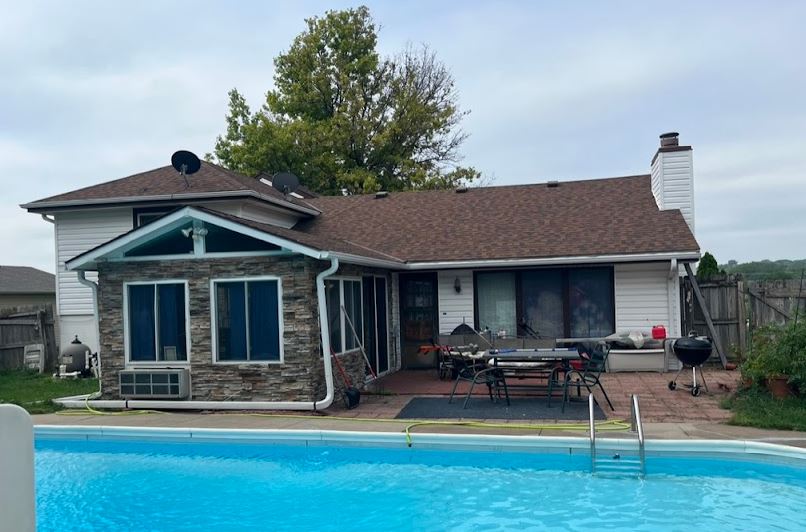Inheriting a property can be a blessing, but it can also come with challenges.
Deciding what to do with an inherited home is a big decision that comes with many financial, and emotional considerations.
If you’ve recently inherited real estate and are wondering if you can sell it, this post will help you
I’ll break down everything you need to know about selling an inherited property – including the process, taxes and other legal stuff.
What Is Inherited Property?
Inherited property is real estate or other assets that are passed down to heirs or beneficiaries upon the death of the owner through their will or estate.
This could include a family home, vacation property, investment properties, or even commercial real estate.
If the deceased didn’t have a will, the state will determine who inherits the property, usually close relatives like spouses, children, parents, or siblings.
Some properties have to go through probate before transferring ownership.
Can You Sell Inherited Property?
Yes, you can sell an inherited property.
If the property was part of an estate and passed through probate, you’ll need to wait until the probate process is complete, and the property is officially transferred to your name.

This can take several months.
And if there are multiple beneficiaries named in the will or trust, you’ll need to get an agreement from all parties before selling the property.
Selling inherited property is actually a good option.
It will give you immediate access to a significant amount of cash. Plus, you don’t have to deal with repairs, property taxes, and ongoing maintenance costs.
Tax Considerations
When you sell an inherited property, you will be subject to capital gains tax on any profit made from the sale.
However, the tax is calculated based on the property’s value at the time of inheritance (known as the “stepped-up basis“), not the original purchase price.
For example, let’s say the property market value is $300,000 now, and you sold it for $300,000.
You don’t have to pay any taxes because you didn’t gain anything.
But if you sell it for $350,000, you have to pay the capital gains tax for that extra $50,000.
Apart from capital gains tax, you will owe income tax if you rent out the property or generate income from it before selling.
And in some states, you might have to pay estate taxes too.
How To Sell An Inherited House
Selling an inherited house is almost the same as the normal real estate sale processes, but there are a couple of things you should do first:
#1 Establish Ownership
Before you can sell the house, you need to establish legal ownership.
If the property was part of an estate with a will, you’ll need to go through probate.
Once probate is complete, you’ll receive a court order or deed transferring ownership to you or the other beneficiaries named in the will.
If the property was held in a trust, the trust document should outline the process for transferring ownership to the named beneficiaries.
If there are multiple beneficiaries, all parties named in the will or trust must agree on how to proceed with the property.
Also Read: Selling a house after death of parent
If some beneficiaries want to sell, and others want to keep the property, you may need to explore options like buyouts or partition actions to resolve the conflict.
#2 Get A Time Of Death Appraisal
Next you need to obtain a time of death appraisal for the property.
This appraisal is used to determine the property’s fair market value at the time of the previous owner’s passing.
The time of death appraisal serves two important purposes – to establish a baseline value and for tax purposes I mentioned earlier.
According to the IRS, this must be completed within six months of the deceased owner’s passing and must be performed by a qualified professional appraiser.
#3 Prepare The Property
Before listing the inherited property for sale you need to clean and organize it.
Sort through the previous owner’s possessions and decide what to keep, donate, or remove.
You might also want to do some repairs and renovations if you are going to list it in the open real estate market. Otherwise, don’t bother – you can sell it as is.
So take a good look at the property and figure out what needs fixing or updating the most. Start with the essentials, and then, think about the smaller stuff that can make a big difference, like giving the place a fresh coat of paint or landscaping.
#4 Decide How To Sell It
With all of that done, you can now sell the house. You have three options –
- List on the open market with real estate agent
- Sell at an auction
- Sell to a cash buyer
If you want to get the maximum sale price, go with a real estate agent.
If you want to sell it fast, go with a cash buyer. They can close in as little as a week or two, and you’ll receive a cash offer based on the property’s current condition and market value.
Auctions can be a quick way to sell too. You can set a reserve price, so that the property doesn’t sell below a certain amount.
But there’s no guarantee of the final sale price, and auction fees can be huge.
#5 Market and Sell the Property
If you’re working with a real estate agent, they will handle the listing and marketing of the property, including:
- Professional photography
- Virtual tours
- Listing the property on MLS and other portals
- Hosting open houses and private showings
They’ll also help to negotiate offers and counteroffers on your behalf.

You don’t need to worry about marketing or negotiation offers if you are selling to a cash buyer or at auction.
#6 Close the Sale
Once you’ve accepted an offer, the final step is to complete the sale and transfer ownership to the new buyer.
Your attorney will handle all the legal paperwork.
Depending on the sale price, you may owe capital gains taxes so you need to sort that out too.
And if there are multiple beneficiaries, you’ll need to distribute the sale proceeds according to the terms of the will or trust, or reach an agreement among the parties.
Selling Inherited Property With Multiple Owners
If there are multiple beneficiaries or owners of the inherited property, it’s crucial to establish a clear plan and obtain agreement from all parties.
This may involve:
- Agreeing on whether to sell or keep the property
- Determining a fair method for dividing the proceeds or buyout terms
- Considering the potential for one owner to buy out the others
- Seeking mediation or legal assistance if an agreement cannot be reached
Communication and cooperation among all parties are essential to avoid conflicts and ensure a smooth sale process.
FAQs
Is There A Time Limit On Selling Inherited Property?
No, there is no legal time limit on selling inherited property. Once you have completed the probate process and are legally the owner, you can sell the property whenever you choose.
Also Read: Best Time To Sell A Distressed House
Documents Required For Selling Inherited Property
You need all the usual sale documents, along with the will or estate paperwork proving your inherited ownership rights and a death certificate.
Can I Sell My Share Of An Inherited Property?
Yes you can. However, this might require an agreement from the other owners or may involve a legal process called a partition action.
Can I Sell Inherited Property To A Sibling Or Family Member?
Yes, you can sell inherited property to a sibling or family member. It’s a smooth and convenient way to settle the ownership situation. You need an agreement though, so talk to a lawyer.

